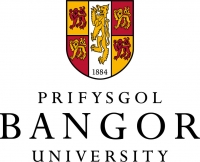
MSC Banking and Finance
This degree programme provides the opportunity to follow the prestigious CFA (Chartered Financial Analyst) specialist pathway and acquire the skills to complete the CFA Level 1 examination (for both September-intake and January-intake students). Click here for more information.
Banking and financial services represents a highly competitive and rapidly changing sector in every modern economy. Changes in customer requirements, technology, competitive conditions and regulation create the need for managers, traders and analysts to make rapid and often far-reaching decisions about their short term operations and long term strategies. The MSc and MA in Banking and Finance degree courses at Bangor offer you a unique opportunity to study advanced theory and practice relating to financial services, and to develop an appreciation of the causes and significance of current developments in this vitally important and dynamic sector of the economy.
Issues you will tackle as part of your MSc or MA Banking and Finance degree programme include:

With these needs in mind, the MSc and MA Banking and Finance programmes at Bangor are designed to develop participants’ existing skills through a scheme of specialist advanced study. An important objective is to provide participants with relevant analytical training, so that they are familiar with the latest theoretical and practical developments relating to banking, finance and capital markets. These programmes provide a coherent theoretical framework for the various subject areas, but the emphasis throughout is on advanced practical application of financial techniques in a real-world setting.
The availability of parallel MSc and MA degrees in Banking and Finance allows you to choose between registering for a more technical MSc degree (including a compulsory element in Financial Econometrics), and a less technical MA degree (for which Financial Econometrics is optional). The MSc degree may be more suitable for applicants with some previous background in mathematics, statistics or econometrics, while the MA degree is more suitable for applicants who prefer to adopt a predominantly non-quantitative approach to their studies. However, both degrees include a compulsory module in Research Methods, which includes coverage of both quantitative and non-quantitative research techniques. Provided you are registered for the correct modules for your chosen degree, it is normally possible to transfer between the MSc and MA degrees during the first few weeks following your initial registration.
ESRC Recognition
The MSc Banking and Finance is recognised by the Economic and Social Research Council (ESRC) as the first year of a 1+3 PhD training programme.
Course Structure
January intake: Taught modules are undertaken in the period of January to June and September to January and will involve the study of 120 credits. The dissertation (or equivalent) is valued at 60 credits and is undertaken during the period of June to September.
September intake: Taught modules are undertaken in the period of September to June and will involve the study of 120 credits. The dissertation (or equivalent) is valued at 60 credits and is undertaken during the period of June to September.
Find us on Social Media:
![]() Facebook.com/BangorBusinessSchool
Facebook.com/BangorBusinessSchool
![]() Twitter: http://www.twitter.com/BangorBizSchool
Twitter: http://www.twitter.com/BangorBizSchool
![]() Youtube: www.youtube.com/user/BangorTV
Youtube: www.youtube.com/user/BangorTV